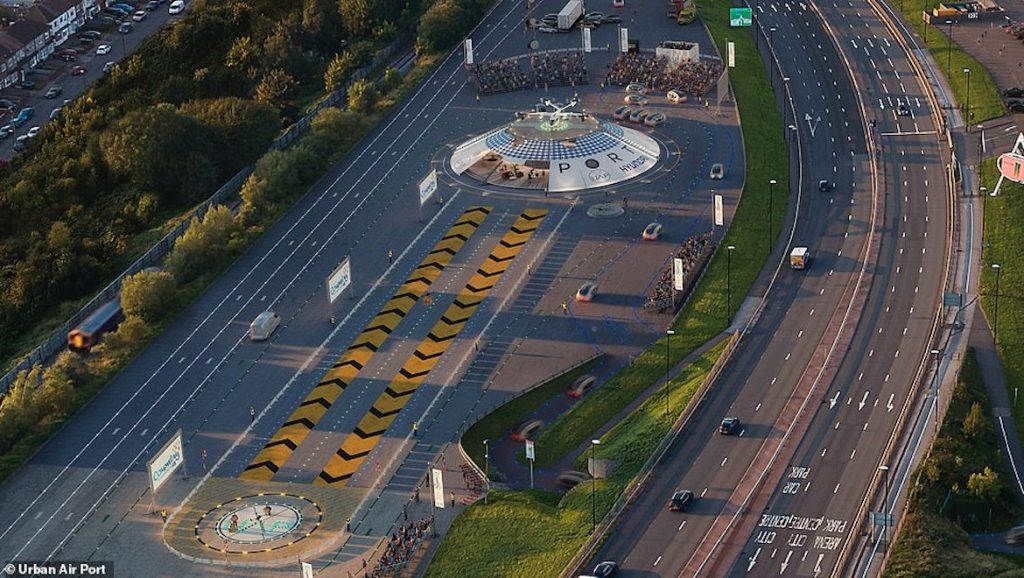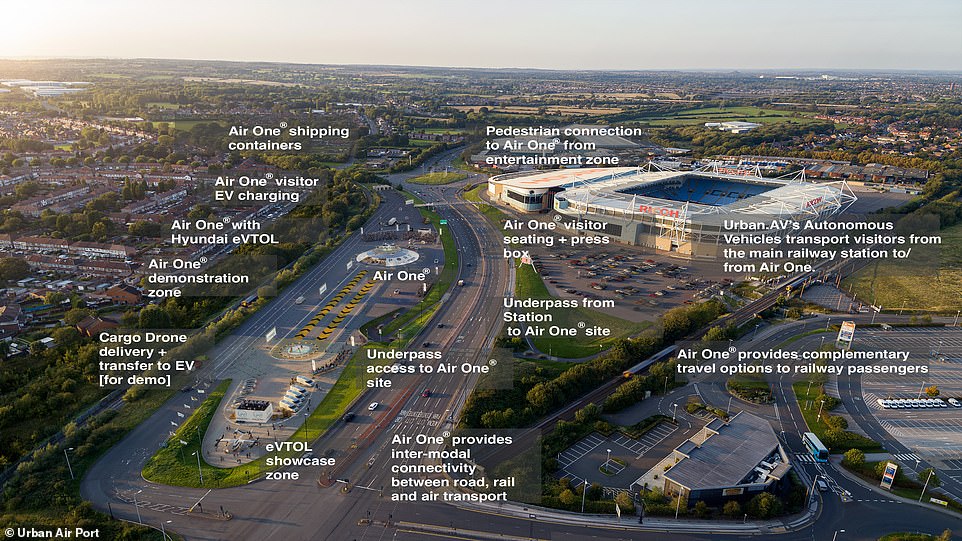
The world’s first pop-up mobile airport for eVTOL vehicles and drones is set to open its doors in Coventry, UK, by November this year.
Korean car manufacturer Hyundai and British company Urban-Air Port have teamed up for the project, which hopes to see similar small, demountable airports specifically catering to electric cars, air taxis and drones.
The port concept, referred to as ‘Air-One’, will provide facilities for charging, cleaning, maintenance, and passenger loading and unloading.
Air-One can reportedly be operated off-grid and can also be integrated with electric vehicles and sustainable public transport.
Its design means it takes just days to put up, and can be easily dismantled and moved to alternative sites, as the air-mobility sector develops.
The airport itself has a landing pad that’s 14 metres in diameter – bigger than a traditional helipad, meaning it can be used for both traditional helicopters and any form of eVTOL (electric vertical take-off and landing) vehicle.
The pad sits atop an elevated platform, and once a vehicle has landed on it, the pad then moves down into the hanger, where vehicles can move around the site for cleaning, charging, or passenger pick-up/drop-off.
The site will also contain a small lit runway.

Designers said the temporary sites will help to “reduce congestion, cut air pollution, and contribute to a zero-carbon future”, with the ports themselves being zero emission.
The Coventry airport is set to be the first of more than 200 zero-emission sites Urban-Air Port plans to install worldwide over the next five years.
Coventry City Council and MPs have backed the proposals for the introduction of Air-One, with the project set to receive a £1.2 million government grant.
The ‘urban air mobility’ revolution is estimated to be worth almost £1 trillion over the next 20 years as companies and governments invest in eVTOL aircraft and associated infrastructure.
Unveiling the first Air-One airport in Coventry, Pamela Cohn, chief operating officer for the urban air mobility division of Hyundai Motor Group, said, “As we advance our eVTOL aircraft program, development of supporting infrastructure is imperative.
“Air-One is a unique project that is set to help lead the way in developing a robust, accessible and intermodal infrastructure network for future mobility.
“We are excited to be part of this partnership in the UK and look forward to working together to create community impact and opportunity through safe, affordable, and human-centred mobility solutions.”
Meanwhile, Ricky Sandhu, founder and executive chairman of Urban-Air Port, said, “Cars need roads. Trains need rails. Planes need airports. eVTOLs will need Urban-Air Ports.
“Over a hundred years ago, the world’s first commercial flight took off, creating the modern connected world. Urban-Air Port will improve connectivity across our cities, boost productivity and help the UK to take the lead in a whole new clean global economy.
“Flying cars used to be a futuristic flight of fancy. Air-One will bring clean urban air transport to the masses and unleash a new airborne world of zero emission mobility.”
The news comes a year after Hyundai unveiled its own plans for a flying taxi called S-A, which was designed in collaboration with rideshare giant Uber.
In January 2020, Hyundai and Uber jointly unveiled their concept electric aircraft at the Consumer Electronics Show in Las Vegas.
The eVTOL is designed to fly on trips of up to 100 kilometres and has a cruising speed of up to 290km/h.




